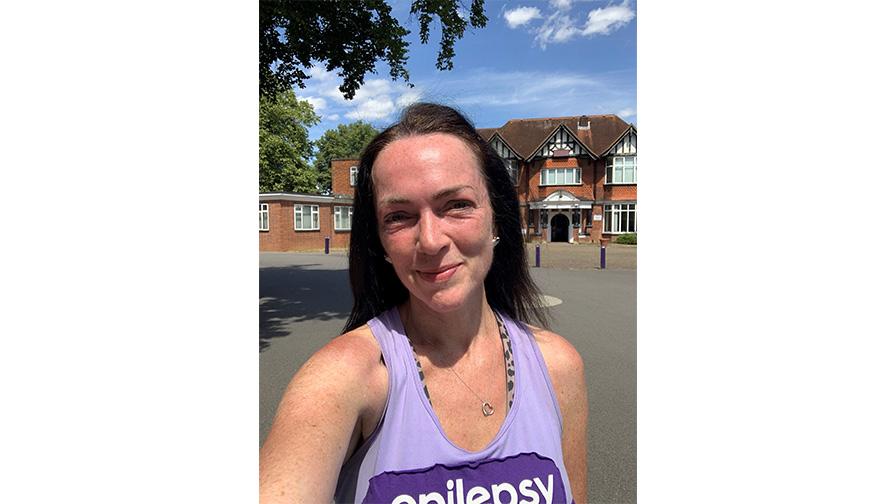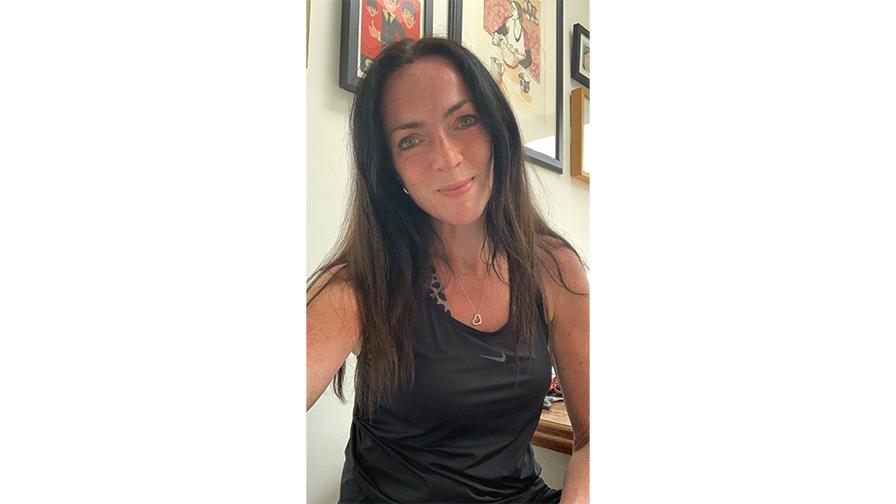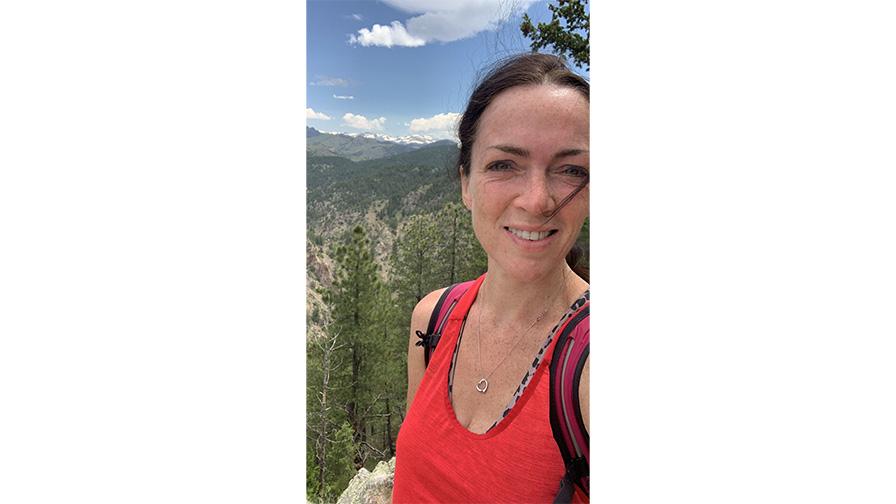Claire's story
Finding strength through epilepsy and change.

Claire was thriving in her role as Creative Director at a busy London design agency. Her days were filled with creative energy, tight deadlines, and the drive that comes with leading a passionate team. Life was full — balancing work, family, and the demands of a successful career.
But in 2018, Claire began experiencing subtle, unsettling sensations — feelings she would later recognise as auras. These episodes came and went over a two-year period, prompting heart tests and chest MRIs, yet no clear answers. The symptoms quietly disrupted her life, lingering in the background.
Then, in June 2020, everything changed. During the height of the COVID-19 lockdown, Claire wasn’t feeling well and went to bed — only to wake up in King’s College Hospital, having had a full tonic-clonic seizure. She had no memory of what had happened, or why she was in hospital. She remained there for a week, disoriented and confused.
The most devastating impact wasn’t the seizure itself — it was the memory loss. Claire had lost four to five years of her life. While she still remembered her children and close family, much of her recent past had vanished.
Following an EEG, Claire was diagnosed with temporal lobe epilepsy, a form of epilepsy that directly affects memory. She began seeing a neurologist and started to keep an aura diary. Through her own careful tracking, Claire noticed a consistent pattern: her auras often occurred just before her period.
Claire has since discovered the connection between epilepsy and hormones in women — but found the information so hidden, it felt like she had uncovered it herself.

Unfortunately, her experience highlighted a lack of coordination between different areas of medical care. A menopause consultant advised her to stop taking progesterone tablets but soon after, Claire felt on the verge of another aura. Her sister researched and found that sudden withdrawal from HRT could trigger seizure symptoms. Claire restarted the medication, and the aura symptoms disappeared. When she shared this with her menopause consultant, she was told, “Your epilepsy is nothing to do with me.”
It was a stark reminder of how disconnected some areas of care can be. Claire’s experience highlighted the need for better communication between specialists — particularly when it comes to the relationship between epilepsy and hormones. She now feels strongly about raising awareness of this link and is passionate about advocating for more integrated, informed care that recognises the full picture of women’s health.
Claire’s last aura occurred in 2022, triggered by jetlag after a long flight. While medication has helped keep her seizures and auras in check, it hasn’t restored her memory. In fact, she believes the auras have caused more damage to her memory than the seizures themselves — a realisation that prompted her to reassess how she was living.
Determined to take control of the factors she could influence, Claire began making significant lifestyle changes. Managing stress and tiredness became essential, and the most transformative decision was her divorce. The relationship had been a source of unhappiness and stress, and letting go of it marked a turning point. Losing her memory became a “eureka moment”: life is too short not to be happy. She gave up alcohol, prioritised sleep, and focused on wellbeing.

Staying strong and fit is another way Claire manages her epilepsy. She focuses on what she can control and let’s go of what she can’t. Recently, she completed a fundraising walk of over 30 miles from her home in South East London to Epilepsy Society headquarters in Buckinghamshire — a testament to her resilience and determination.
Her children have been her greatest support. They’ve helped her rebuild memories, offered patience and empathy, and never complained — even when she couldn’t drive and needed help getting to her son’s football matches. Her eldest sister, who has lived with myeloma, a type of blood cancer, for 15 years and still works full-time, is a constant source of inspiration: “If she can do it, I can too.”
Returning to work was challenging. Claire had forgotten client names, processes, and key details, but her boss was incredibly patient and supportive. Claire is focused on efficiency and balance and encourages her team to do the same, by avoiding late nights and getting enough rest.
Epilepsy has changed Claire’s attitude to life. She now feels more vulnerable — more aware of what could happen if she wasn’t here — and more sensitive to the importance of patience and empathy from others.
She also feels lucky. She’s been seizure-free for the last three years, she’s back at work, surrounded by a supportive family, and living a life that prioritises happiness and health. Epilepsy has changed her — but it’s also given her clarity, strength, and a renewed sense of purpose.
